LGBT+ Inclusion for Catholics
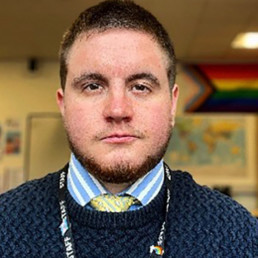
Written by George White
George White is an experienced teacher of RE and a Diversity & Inclusion Lead at a Catholic secondary school in Leicester. He holds a BA in Philosophy and Theology from Heythrop College, an MA in Global Ethics and Human Values from King’s College London and a Secondary PGCE in Religious Studies from the University of Cambridge. As an openly trans and Catholic educator, he has delivered conferences on LGBT+ Inclusion in Catholic Schools to the NEU as an LGBT+ rep for the East Midlands, Schools Inclusion Alliance, ASCL and more.
The official teaching of the Catholic Church, found in the Catechism, states that ‘[LGBT+ People] are to be accepted with sensitivity, compassion and respect. Any form of unjust discrimination in their regard should be avoided.’
One of the greatest privileges I have had in the last 12 months came from my role as one of the committee members at Quest, the charity aimed at LGBTI Catholics and their families providing pastoral support. In the summer term of last year, we hosted an online conference titled ‘LGBT+ Inclusion in Catholic Schools’ with Fr James Martin SJ who has always been a vocal advocate for the LGBT+ community despite the vast number of threats he receives online. In spite of that, he has received commendation from Pope Francis for his ministry towards LGBT+ Catholics when he said, ‘I pray for you and your work’ in a letter received in 2023 and prior to that Pope Francis thanked him for his ‘pastoral zeal and ability to be close to people with the closeness Jesus had’ in reference to his LGBT+ ministry. I was able to interview Father James Martin SJ in a conversation that lasted the best part of one hour and thirty minutes in which time he gave several helpful ways in which schools – and all Catholics – can be more inclusive of the LGBT+ community. I was set with my questions and after the interview has finished, I tried to process this into some simple tips that anyone might be able to take away from the session. I have settled on the following three, some of which have even been picked up by the Holy Father in the last few months.
Firstly, as Catholic educators and ministers, we are invited to listen to the stories and experiences of the LGBT+ community. In particular, we are invited to listen to the language that the community uses to describe ourselves and our stories. Pope Francis is the first Pope to say the word ‘gay’ instead of the outdated phrase in the catechism ‘homosexual’. When we listen to the stories of others, we are more easily enabled to accept with compassion, sensitivity and respect. Pope Francis encourages us to reach out to those on the peripheries – and very often – LGBT+ people can feel as though they are there. In the school resources provided by each diocese for Synod 21-23, pupils are asked the question, ‘who are the people who feel excluded and left out of the church?’ In my experience, lots of pupils labelled the LGBT+ community amongst others. From what we have seen of the synod responses, the contributions of LGBT+ people and women have been recorded, visibly – perhaps most obviously included for the first time in the history of the Church. I invite my fellow educators to recognise the language they are using in schools; use the preferred names of trans pupils, use ‘gay’ or ‘lesbian’ instead of ‘homosexual’ and invite LGBT+ Catholics to tell their story to pupils and staff. Reprint lanyard cards with pronouns and new photos for pupils who come out. Use LGBT+ people and symbols in marketing material. I was fortunate enough to be selected to be in a campaign for the Department for Education’s ‘Get into Teaching campaign where I spoke openly about being a transgender and Catholic teacher of Religious Education. These visible signs help pupils and staff who are LGBT+ to know that they are welcome and accepted, as church teaching says that we should be.
Secondly, there are many opportunities in the academic calendar that are fitting for both Catholics and the LGBT+ community. Fr James Martin SJ spoke about meeting young people where they are, accompanying them and celebrating their journey in life with them. For example, he has written that Catholics can absolutely celebrate Pride month, providing the focus is on human dignity. There are many ways to celebrate and/or remember the LGBT+ community throughout the year. For example, in my own diocese, we hosted a mass with the intention of remembering ‘Transgender Day of Remembrance’ on November 20th. This is a day where we remember those who have lost their life due to their transgender identity; whether by murder or suicide. We pray for the souls of the departed and also pray for an end to the persecution that they may have faced which led to their death. We wrote bidding prayers with this in mind and came together to remember this event with trans people and allies in our community. In addition, you may choose to look at material that goes out in February which is LGBT+ History Month. We wrote prayers for our morning registration in which we included the scripture from Psalm 139, ‘I praise you for I am fearfully and wonderfully made’ and we invited the school to come together for an end to LGBT+ persecution around the world. This kind of education helps us to prevent discrimination which might be directed towards the LGBT+ community especially from a religious perspective.
Finally, and perhaps the most obvious way to help contribute to the avoidance of persecution, we are called to stand up for the legal rights of our LGBT+ communities and relationships around the world. Pope Francis recently publicly spoke about the great injustice in several countries in the world who give a prison sentence or death penalty to those who are LGBT+. Prior to this, the Pope has advocated for legal same sex unions saying that LGBT+ couples have a right to be protected as families. This is perhaps a little harder for us to easily translate into life at school but not impossible. For a start, we can use clips of Pope Francis talking about these things to educate pupils on the realities of the world and what this means for LGBT+ people. We can also use it to guides our policy writing. As published by the Catholic Education Service in 2018 ‘Made in God’s Image’ we should deal with homophobic, biphobic and transphobic bullying the same way we do other discriminatory bullying. Our policies should clearly state that these types of behaviours will be treated in the same way as racism, sexism and other forms of discrimination. If we do not treat homophobic, biphobic and transphobic bullying in the same way, then we are guilty of breaking the law. Policies (such as those around uniform/make up and behaviour) should be gender neutral so that they apply to all students fairly.
The conversations I have had around LGBT+ Inclusion have led more generally to a review of the way in which we talk about diversity, equality and inclusion for all in our school. We host two ‘Diversity and Inclusion’ weeks a year where we have sessions from outside visitors as well as students sharing with their peers on things like race, faith, gender identity, sexual orientation, mental health, neurodiversity and the intersectional nature of lots of these characteristics. It has helped us to reassess the way in which we raise awareness to and celebrate our own diversity as a Catholic school community. We were commended in our recent Ofsted inspection as being an ‘inclusive’ school and we now have a dedicated staff and pupil group working towards our initiative to celebrate all human dignity in our community and ensure that everyone has a place – and more importantly a voice – at our table. We are guided by the principles of Catholic Social Teaching; solidarity, common good, participation and, of course, human dignity.
Reducing barriers to inclusion by casting a wide net
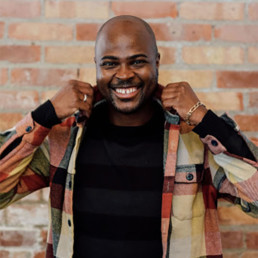
Written by Mahlon Evans-Sinclair
Mahlon Evans-Sinclair is an experienced educator with extensive participation in the fields of learning, professional & personal development, and EDI (Equity, Diversity and Inclusion).
Recently, I updated some guidance on the ‘use of pronouns’ as part of a wider report writing set of guidelines.
From the outset, I’ll say that I didn’t like the singular focus being placed on pronouns. Given that it’s an agitator for many, it felt like it was getting in the way of a wider message about how to write for a document that’s official in nature, but also personal in content. Additionally, the wording gave off a ‘need to know’ basis about any change/accommodation needed for the child in this regard. The twin issues for me in this are that (1) at a school-wide level, it requires the ‘push for assistance’ button to be pressed before ‘support’ can be given and (2) it can lead to a reactive ‘when prompted to’ attitude from teaching staff, with relation to promoting good practice of inclusion as default across the board.
So I changed the wording from a focus on pronouns to a wider acknowledgement to ‘Inclusive Language’ and in doing so, I added the following points:
- Inclusive language is affirming of all students, regardless of identity marker. (It reduces anxiety and barriers associated with identity presentation and supports feeling respected, understood and represented).
- [With regards to gender] Use of gendered terms are perfectly appropriate in many contexts (such as report writing) and don’t need to be consistently avoided, however consideration to use inclusive terms is encouraged across all interactions with students.
- Where a request has been made by both student and parent/guardian to use only the student’s name or [different] pronoun, [this will be communicated] directly.
In updating the guidance, there were a few things I wanted to contextualise, so separate from the document I gave further framing:
- Firstly, we should be working to reduce any barrier of inclusion related to accessing the feeling of being part of/belonging in a space.
- Thinking about it from the famously used and adapted ‘equality/equity’ image, we should be working to remove the fence completely (inclusion/liberation), rather than suggesting that we will treat everyone equally unless there has been a request made by the person facing the greatest barrier for an equitable ‘accommodation’.
- Furthermore, it’s understood that it’s not the responsibility of the person facing the oppression to educate others about it, so if we were to take that into account in this case, being inclusive in our language from the start takes the burden off of students having to ‘out’ themselves in highly visible and potentially unsafe way to feel validated in their identity.
- Finally, (in this case), moving the conversation away from being specifically on gender and reactive in its nature, we have the opportunity to move it to being about being ‘Intentional, Individual and Inclusive’ that both affirms the purpose of the space as well as those who are part of it.
Building Belonging in Primary Schools with Human Values
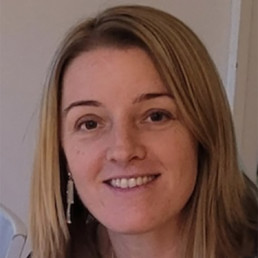
Written by Sarah Pengelly
Sarah has taught in London Primary schools for 12 years specialising in Literacy and PSHE, studied for an MA Educational Psychotherapy and previously worked at the BBC. For the past 5 years, she has been working with non-profit charity, Human Values Foundation, to develop a new values-led PSHE programme called The Big Think
Laying the Foundations of DEI (Diversity, Equity and Inclusion)
The Big Think (TBT) is a PSHE programme for ages 5 to 11 which explores human relationships through the lens of 5 BIG human values (Peace, Love, Truth, Responsibility and Community) and develops 5 BIG Social and Emotional Learning (SEL) skills. Our holistic approach uses Silent Sitting Meditations for Self-Management, Real World stories for Social Awareness skills, Values Inquiry for Responsible Decision-making skills, The BIG Feelings Compass for Self-Awareness skills and a range of safe dialogue practices to build Relationship Skills.
The purpose of TBT is to build Belonging in all pupils and staff because we know that a stronger sense of Belonging in pupils leads to higher performance in all areas (see OECD SEL Report – Beyond Academic Learning 2021)
But when working with Primary schools to embed a whole-school PSHE approach, we are regularly faced with this pressing question from Early Years practitioners: ‘But what about us?’
We will always collaborate, trial, model and adapt our resources for 4-year-olds and younger. But this just isn’t good enough. If we truly want to create a climate of inclusion, equity and celebrated diversity – where EVERYONE (pupils AND staff) feels a strong sense of Belonging – then we must lay the foundations of DEI with the whole school community and start with more serious intentions, and with evidence-based practice, in those precious Early Years.
To this end, we have recently started collaborating with a range of Early Years settings such as The Mulberry House School in West London and Exhall Cedars Infant, Nursery and Pre-school in Coventry, to start together at the beginning and build Belonging in the Early Years from ages 2 to 7.
We are all human first
Human Values work well in all settings and with all ages simply because we are all human and when bringing together groups of people of any age and in any context, this is a powerfully inclusive way to begin. Introducing The Big Think to any school starts with a Community Values Dialogue – a 90-minute circle discussion with 30 invited participants representing the school community (school leaders, teachers, governors, support staff, caregivers, community and faith leaders and most importantly – pupils who are often members of the school council). This will naturally look quite different in different schools and can be face-to-face (always our choice!) or virtual (see case study examples and photographs on the full blog post link below).
Building Belonging in Early Years Settings
The Head Teacher at The Mulberry House School, Victoria Playford, leads with the vision: ‘Born curious, live curious, stay curious’. A prep school in West Hampstead for ages 2 to 7, she wanted to bring to life their PSHE curriculum through their school values and ensure key social and emotional learning skills were being developed throughout the school.
Their Community Values Dialogue involved school council pupils aged from 4 to 7 (including the Minister for Community who was 7!) and offered the chance for very young children to have a voice and part to play in shaping how the school values would influence their PSHE curriculum. Each class has a basket of special animals that bring to life the school values in their everyday learning (e.g. Empathy Elephant, Mindful Meerkat, Resilient Water Bear, Participating Penguin and Meditative Macaque) and these Special Animals became the essence of our work with such young children. A 6-year-old at The Mulberry House School chose to connect Empathy Elephant with the BIG 5 Value of Love ‘because Empathy is about learning to love everyone for who they are’.
Each very young person was able to choose a special animal to link to a core BIG 5 Value and speak about the life skills they would need to show this value in action. Together we created a safe space of non-judgement where everyone could join in with courage, listen with curiosity and respect all ideas. Pupils didn’t have to agree with their peers, teachers or caregivers, and could move the animals around to try out a range of opinions and see which ideas were a best-fit for themselves and their school. A 4-year-old chose to connect the BIG 5 Value of Responsibility with the school’s Resilient Water Bear ‘because it’s my job to ask for help if I need it and this is being resilient’.
During the final check-out of the session, in which everyone is able to share a key idea they will take away and act upon, all adults expressed surprise at the depth of understanding about human values that the very young children were able to demonstrate during the session and the collaborative and inclusive way they were able to make responsible decisions together. We could all see that our youngest humans already know how to live life as natural ambassadors for DEI – we just need to protect safe spaces for them to practise these innate values and skills.
Exhall Cedars Infant, Nursery and Pre-school in Coventry is a vastly different context serving an area of high deprivation. However, it is laying the very same foundations as The Mulberry House School. Headteacher Sharon Hillyard and PSHE Lead Bex Episcopo were keen to build Belonging in their pupils aged from 2 to 7 through self-regulation and oracy skills. They knew that if their children had time to understand themselves more deeply and were able to label their feelings and talk about them, they would feel a stronger sense of Belonging and be able to access learning more readily. Exhall Cedar Infants also use special animals to represent the values (Rex the Resilient Fox, Rory the Respectful Rabbit, Kai the Kind Deer, Nuala the Nurturing Owl, Hadwyn the Honest Hedgehog).
During the Staff Workshop, Early Years teachers shared their experiences of very young pupils who struggled to belong as their communication and language skills were the most underdeveloped they had ever seen – with many arriving unable to make the sounds for animals. For a host of complex reasons, the pandemic, coupled with rising poverty, have had a marked impact on the ability of pupils to feel they belong at school.
In response to this national need, our new Early Years resources will focus on developing Self-Regulation and Oracy skills. Early Years children and staff deserve access to high quality evidence-based resources to support them in the vital work they do in establishing strong foundations on which to build learning and belonging for life. We can’t wait to get started.
See full blog post with photographs and case study examples:
Getting to the Heart of Inclusion and Belonging
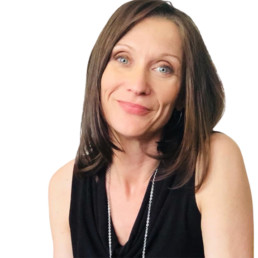
Written by Jennifer Johnson
As a parent, a former educator, an entrepreneur and a passionate change-maker, Jennifer is on a mission to empower young people to be their best selves to create a better world. She has an M.A. in Education in Curriculum, Teaching and Organisational Learning.
Common sense tells us that inclusion initiatives cannot thrive in environments where people are disconnected, have little sense of belonging and are struggling with their well-being. Today, principals are tasked with creating healthy and supportive environments where all stakeholders including teachers, students, staff, families can thrive – all at a time when we are still recovering from the erosion of the social fabric in our schools and communities.
The reality we are all accepting is we are not going back to “normal” anytime soon. Further, the complex issues in our systems cannot be remedied with quick fixes; and, on a school level, principals are not able to tackle such formidable issues using traditional approaches alone. The struggles of the past two years have led to notable increases in everything from mental health issues to bullying and hate crimes – a spectrum of symptoms with seemingly related root causes. These indications are no doubt a result of the unprecedented levels of uncertainty, prolonged interruptions to interpersonal interaction, diminished opportunities for extra-curricular activities, an absence of routine and ritual, and the subsequent loss of a sense of purpose, meaningful connection, and engagement for young people.
However, one of the gifts of the past two years has been the collective interest in taking a closer look at what is at the heart of inclusion and belonging. In order to provide schools with foundational support for critical conversations around inclusion, we need to examine the subtle interplay between well-being and identity, and how they contribute to feeling a sense of inclusion and belonging. Since launching Captains & Poets in schools in 2019 we have seen time and again that they are inextricably intertwined.
Dr. Helen Street, honorary associate professor in the graduate school of education at The University of Western Australia and chair of Positive Schools has introduced the concept of Contextual Wellbeing: “a state of health, a happiness and positive engagement in learning that arises from membership of an equitable, inclusive and cohesive school environment. (2016) In her book Contextual Wellbeing – Creating Positive Schools from the Inside Out, she highlights the relationship between the individual and the environment. “Rather than, ‘How can we improve the wellbeing of young people in our schools?’ perhaps we should be asking, ‘How can we improve equity, creativity and cohesion?’” (2018)
The challenge of creating more inclusive schools is we cannot promote inclusion without first addressing the fundamental human need of connection. This includes connection to self, connection to others, and connection to the world around us. We need to acknowledge that everyone has universal needs of physical, mental, and emotional safety that need to be met before we can connect. We also need to recognize where our systems and behaviours are in direct opposition to the very norms we are trying to reinforce.
Well-being does not happen in a vacuum. It is largely a social experience as well-being and connection have a reciprocal relationship. When we are positively engaged in an environment, we are more likely to have a healthy sense of well-being. Likewise, when we are feeling supported around our well-being, we are more likely to engage in the world and explore who we are in positive ways. One supports and reinforces the other.
When we put a well-being lens on current school priorities around Diversity, Equity and Inclusion (DEI), we can begin to understand the challenges we face in making progress on our objectives. The changes we are trying to make in schools to support a more inclusive environment are directly impacted by the collective state of well-being and vice versa. Both students and educators are struggling with mental health issues in unprecedented ways and most principals will tell you that resilience and well-being are at an all-time low. We need to provide a safe space to explore these needs first. Our individual needs being met are then, in turn, closely mirrored in our collective sense of well-being. Street goes further to stress the importance of context when looking at well-being. Sometimes well-being is about expressing negative emotions and identifying what is not working for us. More than ever, we need to create conditions for this to happen in schools.
A similar interplay is seen in the development of a healthy sense of identity. Identity is a result of the complex and ongoing dynamic between what is inside of us yearning to be expressed, what opportunities and/or barriers are present in our environment, how we present ourselves in the world, and how the world responds to us. At any given point in our lives, we are both solo agents and co-creators in every social interaction. We can see this demonstrated in how we each express who we are in different contexts (work, home, the community, etc.) based on the roles we play, our own needs, motivations and aspirations, the expectations of us, the environment and the underlying needs and dynamics of the group.
It becomes increasingly clear that the development of identity and well-being are not entirely separate constructs. Case in point, the rise of trauma-informed approaches illuminates the interplay between lived experience, our sense of identity in the world, our general well-being, and our ability to express ourselves fully and healthily in different social contexts. It follows that inclusion initiatives should not be mutually exclusive from those of well-being. Otherwise, we are presenting schools with the insurmountable challenge of tackling complex issues through a compartmentalized lens. What is needed more than ever is an integrated approach; and the fact is we are all wired for it.
According to Dr. Dan Siegel, a clinical professor of psychiatry at the UCLA School of Medicine and the Executive Director of the Mindsight Institute, the mind is both embodied and relational. It includes what happens in the whole-body experience as well as how we interact with people and more broadly our world. Siegel’s research in interpersonal biology demonstrates that well-being comes from a state of ‘integration’ whereby we create harmony of our parts within us and extend this relationally by respecting this process in others. With this mindful lens, we can inquire into and honour what is going on inside of us while extending the same to others. By achieving harmony within first we are better able to have empathy for others. We can be attuned to differences in perspective and experience and at the same time ‘link’ to them with compassion. The mind enables us, at once, to hold space for ourselves and others. Well-being can then be described as an integrated self or way of being in the world. This integration of embodied and relational aspects of our experiences then leads to the ability to form deeper relationships that create space for vulnerability, and inspire connection, caring and the desire to help others. Is this not the formula for inclusion?
Looking through this integrated lens, we can begin to understand why taking a purely educational approach to critical DEI conversations is limited. We engage advocacy groups to deliver workshops and keynotes to illuminate the lived experiences of others and inspire us to open our minds to create greater understanding. We resonate with their stories, and we leave inspired only for our institutions to go back to business as usual on Monday. What we aren’t tapping into is the sense of connection that is surfaced in those moments. Without the ability to sustain this connection, our efforts wane and our impact erodes. Until the next year when the cycle repeats.
DEI initiatives aren’t just a top-down initiative and certainly should not be a box-ticking exercise, especially with the limited resources and energy on hand right now. Perhaps what we have been missing all along is that the desire for connection is a free and abundant resource at our disposal. We need to make a shift from informational approaches to inclusion to transformational ones that anchor in our hearts and weave into how we engage each day. Building and then sustaining this bridge between self and others is where we fail. The reality is inclusiveness begins on an individual level. As a result, it is essential we find ways to address and engage those in the room, their own perceived sense of identity and their readiness to connect.
True connection begins from a place of moment-to-moment awareness where we hone and develop who we are in the world, while simultaneously transforming the relationships around us. We can all reap the benefits of living more authentically and cultivating greater connection by leveraging a deeper, broader sense of self in everything we do. At the heart of inclusion initiatives is fostering connection to self while honouring a sense of connection across our differences. The first step we need to take is toward ourselves.
The emergence of self-awareness in human development is both a curse and a gift. It yields the curse of self-consciousness, which inhibits us from being who we are in the moment. But it also gives the gift of self-leadership, which empowers us to make choices about who we want to be in the moment and how we want to show up in the world. Self-awareness enables us to live more fully into our potential – and to support others in doing the same. We all remember those first moments in our young life when we suddenly became self-conscious. We received a subtle or not so subtle cue from our environment that there were aspects of ourselves that weren’t valued or didn’t belong. In that moment, we became fragmented. Our well-being AND our identity were directly impacted. Take a minute to reflect on those defining moments for yourself and who you would be if you had instead received the message that all parts of you matter and are worthy of being seen. How did those defining moments impact who you became in that situation and your happiness over the long-term?
We spend our lives on a journey back to wholeness to reclaim ourselves. We yearn for environments that allow us to find comfort in our own skin and encourage us to be our best, fullest selves. In education, we talk about this in terms of enabling students to reach their full potential, but this is often diminished to academic and strengths-based approaches. What gets missed is the whole child – who we are in all our complexity – as well as how our surrounding social contexts impact us on an individual level. Street reminds us in her book that:
’Flourishing’ is an interplay between our best individual selves and our best environment. This means happiness and success are far more than individual pursuits, or even individual responsibilities. Rather, lasting happiness develops when we form healthy connections in a social context that supports and nurtures us to become the best we can be.
When young people are given opportunities to explore and express who they are and to pursue what is important to them in a safe environment, it results in a healthy sense of identity AND well-being. As educators, we need to be mindful of our responses to students and what messages we are sending about who they are, how much they matter, and what is valued or not valued in them. There are many ways in which we tell students not to bring their full selves. We ask them to get along and when they don’t fit in or retreat from the group we move on with the business of the day. We ask them to conform to rules that have been established presumably to bring cohesion and harmony and when they step outside these lines, we exclude them. Our systems and behaviours are often contradictory to the very inclusive norms we are trying to reinforce. Being in an environment we perceive as safe and supportive of our basic human needs gives us permission to develop an authentic sense of identity. This is key to feeling a sense of connection and belonging.
Inclusion is not an end game and, as a result, the risk of fatigue from existing approaches is high. Instead, it is an ongoing process of intra and inter-personal discovery and dialogue that continues to take us deeper into ourselves, supporting and enabling social change through connection and seeing the we alongside the me. If the human experience is fundamentally about coming back to self again and again, then the journey to self is lifelong. At the core of this journey is self-awareness and the ability to ongoingly connect with the world in new and meaningful ways that have a positive impact on everyone.
So how do we make an integrated approach more accessible in the day-to-day interactions of schools? Educators need foundational strategies to support their own self-awareness in order to support young people in connecting with their own inner experience of identity and well-being. If self-awareness is the path to inclusion, we need to be more present to our role in critical conversations at hand, how the curriculum is delivered, the way we address incidents in the schoolyard, and how we engage with all school stakeholders. And we need to empower the same embodied and relational process with students. Perhaps the greatest opportunity at hand is to find ways to create transformation in our schools starting with kids themselves.
Captains & Poets was created to give students a sense of agency in this process of positively contributing to the social context around them. The premise of the program is that there is a unique Captain and Poet in each of us who, in partnership, enable us to be our best, most authentic selves – and to embrace others in the same spirit. While a simple concept, these archetypes give us deep and ready access to key aspects of who we are and the state we are in. Introducing the Captain and the Poet also provides a neutral language that moves beyond gender and race to the human experience of struggling and striving, creating and thriving to be who we are meant to be.
When we expand our ability to view ourselves, we are better able to see the full human expression in others. This gets us closer to an ‘integrated way of being’ in the world. The message we need to send to educators and students alike is they are whole, resourceful beings who have everything they need inside of them to thrive and that they help create inclusive environments by tuning into their own responses and needs with compassion and curiosity. When we are better able to understand ourselves, we are better able to relate deeply with others.
The phrase we use to help young people embrace and celebrate their uniqueness is, “We are all the same because we are all different.” We all have needs. We all want to be seen, to connect, and to matter. We all have a Captain and Poet inside of us ready to help us be fully expressed in the world. Today, we need Captains and Poets everywhere. Perhaps now is a critical time in education to call upon our collective Poets to hold space for ourselves and others on this journey, and to inspire our collective Captains to create safe spaces that empower us all.
Faith is too often seen as a barrier to LGBT+ inclusion, so we’re launching new resources to change this
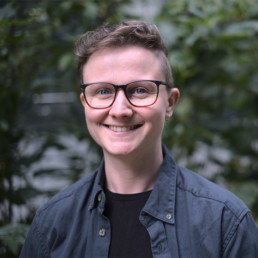
Written by Amy Ashenden
Director of Comms and Media/Interim CEO, Just Like Us, the LGBT+ young people’s charity.
As the new Interim Chief Executive of Just Like Us, my aim this year is to ensure more schools than ever have the tools they need to support their LGBT+ young people.
For several years now, School Diversity Week has been celebrated by so many incredible educators across the UK, showing young people that being LGBT+ is nothing to be ashamed of. Last summer, more than 5,000 primary and secondary schools took part. This year, 26-30 June, I believe it’s vital that schools with intersecting communities have the resources they need to celebrate School Diversity Week.
From faith schools to Welsh-speaking communities and primary schools, Just Like Us will be providing new sets of resources that cater specifically to the educators that need tailored LGBT+ inclusion tools the most. When half of young people (48%) tell us that their school hasn’t given them positive messaging about being LGBT+, it’s clear to me that we have a long way to go and that to change this, schools need the right kind of resources that speak to their individual ethos and community.
Our new independent research has found a third of teachers (30%) say faith has been a barrier to discussing LGBT+ topics in school. More than 7,000 UK teachers took part in our survey this February, revealing an indisputable need for resources that are both LGBT+ and faith inclusive.
That’s why we’ve launched a new series of faith and LGBT+ inclusive resources for Anglican, CofE, Catholic, Jewish and Muslim school communities. From primary assemblies to worksheets and videos featuring LGBT+ young people talking about their faiths, the resources are designed to give educators the tailored tools they need to celebrate School Diversity Week in a way that makes sense for their community. We have also worked in collaboration with LGBT+ faith-led organisations Keshet, Hidayah, One Body One Faith and Quest to develop these resources in a way that really speaks to the communities they’re designed to support.
In faith schools, the research found that 46% of teachers had previously found faith to be a barrier to talking about LGBT+ topics in the classroom, compared to 25% at non-faith schools. I believe it’s vital that we now provide the tools educators at faith schools need to support their young people who may be LGBT+ or have LGBT+ families.
Interestingly, just 3% of headteachers said that faith has always been a barrier to discussing LGBT+ topics.
A lack of LGBT+ inclusion in schools is so rarely about a lack of willingness but instead due to a historic lack of suitable resources that empower educators to get started on their journey. It’s also important that we remember that LGBT+ and faith communities are never totally separate – as you’ll see in the resources, faith is very important to many LGBT+ young people and to suggest that there’s no overlap just isn’t reality. You can absolutely be LGBT+ or an ally and belong to a faith – being Jewish and a lesbian, I know this reality well.
It’s also really important that we don’t erase the fantastic LGBT+ inclusion work that many faith schools are already doing with their pupils. St Stephen’s CofE Primary School in London is just one example of this. Nicola Collins, who works at the primary school, is a huge advocate for celebrating School Diversity Week and won our LGBT+ Inclusive Teacher of the Year award in 2022. She explained: “As a school, we feel passionate about challenging stereotypes and homophobic language. As a result, the children in our school are well informed and accepting of all people no matter who they are!”
We hope that these new resources will be a gamechanger for schools with faith communities to celebrate School Diversity Week this 26-30 June. We really welcome educators to get in touch with your feedback or any questions you might have about making LGBT+ topics faith inclusive.
Acceptance: Still so much work to be done.
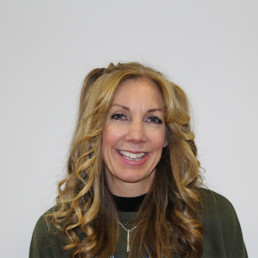
Written by Kelly Richens
Programme Director, BASCITT. BASCITT is proud to celebrate diversity and promote equality and inclusivity (see here)
Applying to train to teach is a daunting enough task; the whole construction of your personal statement and how it defines you, all of your work experience, your qualifications and who will be your referees. All wrapped up in the deep emotions of taking this huge step towards becoming a life-changer for young people.
If this wasn’t searching enough in terms of self-exploration and presenting yourself, there is a section that says ‘Criminal Record and Professional Misconduct’ in which an applicant can make any relevant declaration.
I had an email confirming an application in which there had been such a declaration. Imagine my horror when I opened the webpage to view the application and read: ‘I am unsure whether this is a safeguarding issue, however I feel it necessary to raise and protect myself and others from misunderstanding. I am transgender.’
A flood of emotions ensued: rage that this applicant had felt being transgender could be a safeguarding issue; sadness that whilst she wanted to share this information, she had chosen to include in in a section labelled ‘criminal record’; fear that there are groups of people without the psychological safety to just be who they are without recourse of judgement; and the smallest amount of pride that she had actually been brave to share at all.
So rather than my first conversation with this applicant about her potential qualities as a teacher, I had to have a difficult conversation of reassuring and coaching her that she was in safe hands with us. What a shame that we could not talk instantly about her joy of her subject, or why she was applying to us. Her being transgender was a huge distraction from this and that is wrong.
Whilst I reflect on this, and have since interviewed and offered a training place to this lovely individual, based on her merit, I am still left without an answer of how do we stop this happening again? Keep promoting inclusivity? Keep the courageous conversations going? Keep educating and keep that positive momentum going on how we can continue to aim for a world in which an individual does not fear themselves being viewed through a judgmental lens? Instead a place where everyone can be celebrated for who they are and what they have to offer our pupils.
The Fight Against RSE

Written by Ian Timbrell
Ian is an education consultant and trainer, supporting schools develop their provision for LGBT+ pupils and their RSE curriculum. He has worked in education for 15 years; including as a class teacher and a deputy head teacher.
The cursory glance at social media and the internet suggests that UK RSE curricula include suggestions of bondage, is opposed by most people, is queering education and is a risk to safeguarding. But what is the truth behind this opposition?
The backlash
Broadly, objections can be categorised into three areas: secrecy around RSE; developmentally inappropriate materials; the inability to withdraw from lessons; and the ‘queering’ of education.
The secrecy around RSE
A common oppositional narrative is that schools refuse to show what materials they are using. This view essentially accuses all teachers of not safeguarding their children. We’re not asked to show all materials so why is RSE different? If schools were to publish every piece of planning and resource used, the workload would push an already overworked system to the brink of collapse. This is not to say that there is no transparency. Generally, schools will share this information upon request, or through parent consultations.
RSE is developmentally inappropriate
Opponents of RSE claim it contains messages of anal sex, bondage, pornography and self-stimulation at age 4-6. My son is 9 and I would be horrified if he learnt any of these at his age. But he’s not. Because none of it is in the RSE frameworks.
Proponents of this message often use excerpts of preparatory paperwork as evidence for inappropriate content. But these aren’t in the mandatory documents. As part of any curriculum design process, you look at a wide range of documents to find out everything that is out there. That doesn’t mean that Governments use them, or that you agree with them.
I am not saying that no school has ever used inappropriate materials, but critics fail to acknowledge that these mistakes are in the smallest percentage of schools and instead of banning RSE for all, the individual school should take the appropriate action to ensure appropriate nature of the materials they are using in lessons.
The inability to withdraw from lessons
In Wales, parents are not allowed to withdraw pupils from RSE lessons. Being told that we cannot withdraw our children from any areas of their life is bound to put some people’s heckles up. However, the reality is that this is the case for pretty much every other area of the curriculum. Schools would not allow withdrawal from English or Maths, so why should it be allowed from a framework that aims to develop healthy, happy people?
One of the reasons that withdrawing from all RSE lessons is not as simple as some would like you to think, is that effective RSE is primarily not delivered as ‘RSE lessons’. RSE encourages friendships and respect and so it is impossible to withdraw from any lesson that develops these attributes. What the parents here are generally saying is that they want them withdrawn from sex education and/or mentions of sexuality or gender. Withdrawing from RSE frameworks as a whole is impossible, but withdrawing from sections would be a logistical nightmare for schools and is not realistic.
The ‘Queering’ of Education
This phrase is fascinating, especially because it has no agreed universal meaning. Most opponents seem to be using it as a phrase to suggest that ‘Queer Theory’ is now underpinning education. They are conflating the true meaning of Queer Theory with conspiracy theories to suggest that there is collusion in education and health to somehow convert children to become LGBT+. This is rooted in LGBTphobia and is not founded on anything but discrimination and panic culture.
The real reasons for the backlash
The most obvious and largest group appear to be transphobic and homophobic. The reality is that up to 10% of the population are LGBTQ+ and if we do not ever discuss these things, this whole section of society will grow up wondering why they feel different. But also by deliberately not mentioning LGBTQ+ people, we are saying that they don’t exist, which is phobic in and of itself. Inclusion of LGBTQ+ people on displays, in books and in lessons is not going to turn anyone LGBTQ+, but it will make our world a more inclusive and tolerant place.
An argument opponents to RSE also use is that they don’t want sex talked about to three-year-olds. But sex doesn’t need to be mentioned. At that age, it’s about realising that there are different families and challenging gender stereotypes.
The final reason that I will talk about here is religion. A minority use religion as a reason for their children not to be ‘exposed’ to LGBT+ or gender discussions. I follow a number of LGBTQ religious individuals and organisations, and I can tell you that religion does not spread hate, people do.
Conclusion
In 2021, 5 parents took the Welsh Government to court to ban RSE. Unsurprisingly, they lost the court case as many of the disproved views from above were put forward as ‘evidence’.
The fact is, no matter what change happens in schools, there are always opponents and critics. But when you couple inevitable bemoaners with homophobia and transphobia, there was bound to be pushback. But RSE is key to making the UK an inclusive country and the vast majority of us know that it is the right thing to do and trust the teachers to do the best by their children.
Embracing Equity

Written by Ben Hobbis
Teacher, Middle Leader and DSL. Founder of EdConnect and StepUpEd Networks.
Equity (noun) – the quality of being fair and impartial.
This year’s theme for International Women’s Day is embracing equity. I have to admit over five years ago, if you asked me what this word meant, I could not have told you. I was uneducated and naïve in this area. I had to educate myself.
Five years ago, I would have said I was a champion for equality. I had done this in my previous roles in retail, particularly when it came to recruiting. In my last store, I had a very diverse team across the nine protected characteristics across the Equality Act. And this recruitment was not tokenistic, we had a fantastic team who were brilliant at what they did, and their diversity all brought something to the table. What I did not realise at that time was that I actually was a champion for equity, without knowing it. I was also an ally, but I did not recognise this either.
I believe I am a real champion for equity. This comes down to my allyship. As a white, able bodied, straight male, I have a duty to champion, advocate and push for equity. I see this in my day job as a teacher. As the champion for those 30 children who I serve, I must be the one to challenge decision making that directly impacts my children, decisions that affect them both negatively and positively. As a leader in a school, I must champion equity of opportunity. For example, as Personal Development Leader, one of the first things I enacted was to remove the Head Boy and Head Girl positions, they were limiting because of sex. We now have a mixture of students involved with our student leadership and pupil voice systems. And I am pleased to say in a boy heavy school, we have a large group of girls leading from the front and I am so proud to watch and champion them. As the leader of a grassroots network, I am constantly challenging colleagues in terms of the diversity of event line ups and who our intended audience is.
I recognise, I have not had it as hard as my female counterparts (but also my counterparts who are BAME, LGBTQ+ and so on). Therefore, I must embrace equity in my life and my work. We should all be striving to create an equitable society and not allow equity to be ignored. Embrace equity!
How about making sure your World Book Day Celebrations have inclusive and representative impact too?
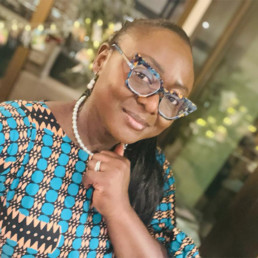
Written by Ndah Mbawa
Ndah runs Happier Every Chapter, a literacy service committed to helping schools and families improve diversity awareness and reading attainment through library diversity audits and the provision of diverse, inclusive and representative bestsellers for children. Her passion for decolonising mindsets within the school-to-workplace pipeline and supercharging the will/skill to read is shared by her teenage daughters, Kirsten & Aiyven.
It’s a little known fact that children start to form biases like racial bias much earlier than we think. For instance, from as early as 3 – 6 months, a baby’s brain can notice racial differences in the people around them. By the time they are 2, most children have soaked up stereotypes about race and may express these with one way or another. By 4, children can directly express race based prejudice or bias by teasing. And, by age 12, many children become set in biased thoughts, actions and decisions. Makes you think about what’s in the school-to-workplace pipeline doesn’t it? One doesn’t need to look further than the Ashford School incident for hard and gravely worrying evidence of such biased actions.
World Book Day provides a great opportunity to be more intentionally inclusive and it doesn’t always have to come down to dressing up. It’s never too early to begin the work of anti-racism & diversity awareness or to help your school setting make progress in conscious equality even as you promote the love of reading. With 34.5% of primary age pupils in the U.K being from minority ethnic backgrounds, diversity will not be the issue for a lot of school settings. How included these pupils feel and consequently how much of a sense of belonging they have will often be the issue. Somewhere in those corridors, a significant amount of pupil engagement is lost. How will you use events like World Book Day to further drive home the message that all are welcome and all belong?
Here are some tips to celebrate World Book Day in a more inclusive way:
📖 Start a book, an anthology and encourage children from different ethnicities or cultures to contribute short stories from their heritage. It will be a great way to uphold this year’s theme of making it ‘your’ World Book Day.
📖 Read stories with a diverse range of characters making sure that these are not limited to ethnic and cultural representations but also include other forms of diversity like gender, ability, neurodiversity, family set-up, sexual orientation etc. When stories featuring diverse characters are told with authenticity, it helps children develop empathy and inclusion giving them an opportunity to see themselves and the world around them in the books they read.
📖 Where possible, ensure the diverse titles selected / included in your World Book Day list are written by own voice authors. As much own voices are not always entirely representative of everyone within that group, it will for the most part foster better connection with the stories as children will not only see themselves in the books but will also be able to relate to the person behind the words thus giving confidence that the worlds created or described are represented in the most genuine light possible. The most powerful advantage of reading own voice books, has got to be that the stories are often told in a way that shines the light on the nuances and subtle differences within that group which can help dispel the stereotypes, generalisations and harmful single stories we may have become so attached to.
📖 For author visits around World Book Day and beyond, engage authors who represent diverse groups or voices. The phrase “We can’t be what we can’t see” will not be new to most of us. Having a face-to-face or virtual encounter with someone we can relate to in one way or the other, is a powerful way to make the right impact.
📖 Promote the use of World Book Day £1 tokens to buy books with diverse characters or books on anti-racism, diversity and inclusion. Being an Ally: Real Talk About Showing Up, Screwing Up, and Trying Again by Shakirah Bourne & Dana Alison Levy is a fabulous choice.
📖 Educate children on how World Book Day is celebrated around the world.
📖 Encourage children to proudly own their heritage by asking them to dress up as their favourite character from one of their cultural folk tales.
Let’s make it a “WORLD” Book Day as the name suggests.
The Time is Now
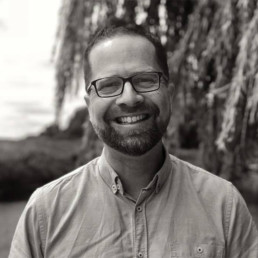
Written by Matthew Savage
Former international school Principal, proud father of two transgender adult children, Associate Consultant with LSC Education, and founder of #themonalisaeffect.
I write this as a father, and as an educator. I am angry, and I am scared.
Occasionally, partly as an experiment, I will share simultaneously on Facebook a) an innocuous post with a smiling photo of me; and b) a ‘call to action’ in support of my two trans children in an alarmingly transphobic world. The former consistently attracts lots of engagement, and the latter virtually none. My inference, corroborated by conversations I have had, is that a majority of people do not want even to enter what they see as a polarised and toxic debate.
This seems to me to be a victory for transphobia, and the ‘gender-critical’ right wing: that it is now widely accepted that we need to debate this at all, when any debate over the human rights of any other protected characteristic would be widely deemed abhorrent. Therefore, whilst some would argue that now is the time for calm debate, and for pause and reflection, this post is none of these. For I would argue that there is also a time for advocacy and allyship, and for activism and action. And the time is now.
I was young enough to experience the acidic effect of Section 28 as a teenager. Growing up in the 1980s, I was oblivious of the identities and expressions of the LGBTQ+ community: in part, this was due to a cowardly and shameful lack of representation in the media, sport and public life, and, in part, to the ignorance and fear of the blinkered society which tried to bring me up; but it was also due to the inability and incapacity of educators even to talk about those lives, even as so many of those same lives were being decimated by a new, deadly virus.
This violent clause was repealed in Scotland in 2000 (it seems the nation I now call home was ever ahead of its southern neighbours), as one of the earliest pieces of legislation enacted by the nascent Scottish parliament and, eventually, by Westminster in 2003. Peace had defeated violence, and love had vanquished hate. However, violence and hate, it seems, had not been beaten, but had merely lurked, waiting for their renaissance; and a new Section 28 lies on the horizon.
At the time of writing this, just over 205,000 people have signed a parliamentary petition calling for the government to “Remove LGBT content from the Relationships Education curriculum”, and this is now awaiting a date for parliamentary debate. Meanwhile, just over only 92,000 people have signed a counter-petition calling for that same government not to do so, and the government is only obliged to ‘respond’.
That is 120% more hatred than love, and 120% more violence than peace.
There is no debate, when it comes to deciding who has human rights and who does not. There is no calm when some of the most oppressed, attacked and marginalised children, young people and adults in our society are under attack. There is no reflection, when the facts and the statistics instantly destroy the hatred, on the too few occasions they are shared. And there is no pause, when children’s and young people’s very lives are in danger.
I write this as a father, and as an educator. I am angry, and I am scared.
Please give your voice to peace and love, both through this petition, and through literally any other means possible.
The time is now.

